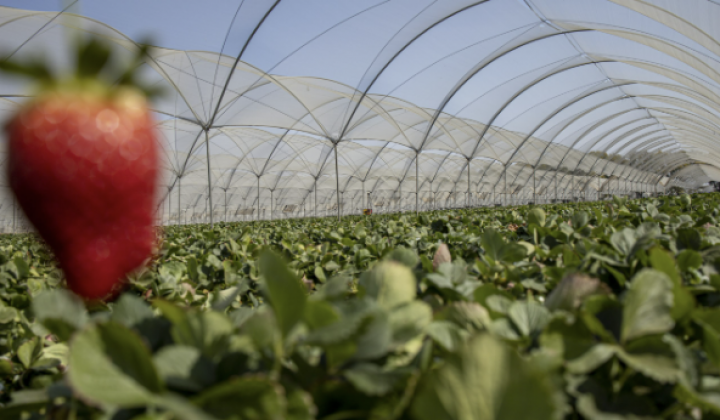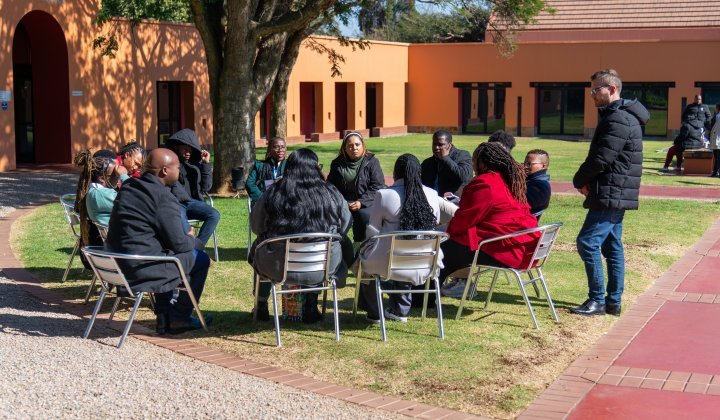Yes, there are “three kinds of lies: lies, damned lies, and statistics”, as Mark Twain put it, but if you’re a small business owner in South Africa, you ignore the statistics relating to SMMEs at your peril. As of September 2024, according to the FinScope MSME Sector Survey, the sector has an estimated turnover of R5 trillion and accounts for 80% of the workforce. There are more than three million SMME entrepreneurs, 30% of whom are under 35, employing around 13.4 million people, and 72% of the businesses operate in the informal sector.
Your biggest challenge as an entrepreneur is to overcome the hard reality that more than 50% of all SMMEs don’t make it through their first five years of operation. It doesn’t take Warren Buffet to see quite clearly that our entrepreneurship landscape is brimming with creativity and innovation yet lacks the vital business acumen and committed mentorship for its own long-term sustainability.
As a business science institute, the response needs to meet innovation with innovation, creativity with creativity in a development academy formula that combines faculty with corporate investment in enterprise and supplier development, providing meaningful support structures that enable the entrepreneur to maintain their ingenuity within a business mindset.
Instilling business acumen in entrepreneurs
In 2012 the GIBS Entrepreneurship Development Academy (EDA) was founded as an epicentre of entrepreneurship education and training, built on the premise that an entrepreneurial mindset and attitude are as crucial as technical skills.
The EDA designs and offers custom programmes mostly invested into by corporates seeking to enable transformation of the South African economy. Another part of the portfolio caters to sponsors who seek to invest in entrepreneurship development in service of environmental or social objectives.
Most programmes aim to strengthen the business skills of existing and/or aspiring entrepreneurs seeking to create economic opportunities for themselves or their communities. The EDA sees entrepreneurship as a way of resulting in programmes with a significant focus placed on positioning entrepreneurship as a lever for change which, when complemented with business acumen, becomes a foundation for recovering the South African economy.
Renaissance Design
Glorinah Mabasa studied interior design and spent four years working in the residential and corporate design sector before an interest in African cultural heritage sparked a creative urge to re-awaken African design in patterns and fabrics. Woolworths clothing line Trenery commissioned a fabric design inspired by the Rain Queen Modjadji, accelerating her business into adopting patterns for interiors, fabrics, and products. As a result, she was chosen as a participant in the Cherie Blair Foundation for Women’s Road to Growth programme with GIBS EDA.
Through the programme she honed her financial acumen, grasping critical aspects of profit margins, expenses, and revenue across her projects. This foundation prepared her to secure funding in the French Embassy’s Creation Africa initiative, which supports creatives in Africa. Her evolution underscores how strategic education bridges potential and achievement.
Mabasa credits her success to understanding her brand’s DNA, its mission, vision, and value proposition. By aligning these elements with robust financial strategies, she has shaped her business, Renaissance Design, into a scalable, sustainable business. This clarity paved the way for operational efficiency and consistent growth.
Her key takeouts from the programme are a discovered confidence in her ability to present her business to potential funders and that her mentors consisted of women at all stages of life and experience in one room.
Innovation as a driving force
Embracing innovation is at the heart of the EDA, where developing an entrepreneur is about more than business acumen, it’s creating an environment of community which outlives the programme and which ensures that entrepreneurship always supersedes the business or idea an individual nurtures in the moment. Depending on the problem set through a programme, the EDA draws on a number of often-overlooked support solutions, such as socio-legal support, early childhood development care for children of female entrepreneurs, or self-defence classes for survivors of GBV or women whose partners may be sensitive to contextual challenges. The programmes are taken to where they are needed and designed for the entrepreneur who participates.
One of the biggest challenges facing entrepreneurs is access to finance through a lack of collateral and understanding of business financials, which erodes their confidence when tackling aspects of funding and fund raising. Giving them the tools in the classroom puts the entrepreneur in a position of familiarity with the numbers and an awareness of investment readiness for their business, be they a start-up, an existing, or a high-growth business owner.
The EDA as an accelerator has taken entrepreneurship education into township economies across the country, not only delivered in a face-to-face environment but in online learning, as well as hybrid models, reducing the barriers to entry and expanding access to mentorship opportunities and the business education offered as a business school.
The fundamentals of EDA teaching are that entrepreneurship is a career of choice and a way of being, that it’s an inherent expression of human creativity and that it complements business acumen and experience.
Partnerships make the difference
In 2021 as the Covid-19 pandemic started running out of breath, clear innovation was needed to assist entrepreneurs who had been locked away, unable to do business as entrepreneurs do – getting out there and meeting their clients and service providers face to face.
A ten-part Small Business Survival Toolkit podcast was put together by the EDA, stemming from a series of LinkedIn Live Sessions hosted by GIBS faculty members Abdullah Verachia and Prof. Manoj Chiba, and sponsored by JPMorgan Chase. It taught the essence of navigating a post-pandemic world for devastated entrepreneurs who had neither the expertise nor the cash resources to ride out two years of isolation. Covering basic finance, marketing, operations, restructures and retrenchments, innovation design thinking, leadership, macroeconomic strategy, resilience in decisions, and consumer behaviour, the podcast series offered GIBS faculty and partner expertise as a commitment to the support and nurturing of entrepreneurship in a time of crisis to anybody who took the time to participate and listen.
Corporate or donor entity partnerships are integral to complementing the teachings of EDA faculty in a symbiotic relationship. Typically, there is a set challenge to be addressed, or a theory of change agreed upfront. The definition of success frames what partners invest into as either philanthropic or enterprise and supplier development spend. In the majority of cases programmes are managed as a partnership, with corporates actively participating in the learning and committing to continued mentorship and entrepreneurship development. The EDA has partnered with entities such as JPMorgan Chase, Walmart Foundation, Exxaro, Glencore, Debswana, SITA Aero, SAB Foundation, Hewlett Packard, Corteva Agriscience and the Cherie Blair Foundation for Women.
The Cherie Blair Foundation works to eliminate barriers to entrepreneurship for women, enabling global economic gender justice. It relies on expert in-country partners, who deliver its tried and tested programmes to women entrepreneurs in their communities and collaborate to adapt programmes for local contexts.
The foundation partnered with GIBS EDA for its proven expertise in developing women’s entrepreneurial skills and being embedded in the South African business ecosystem, making the EDA a seamless fit for the foundation’s work. Since the partnership began in 2022, significant milestones have been reached, such as the success of the HerVenture app, which has supported more than 7 000 women entrepreneurs in the country to date. This impact was also facilitated by the support of DHL Express, whose contribution has enabled the scaling of the programmes, enhanced the quality of the content, and extended the reach. Together with GIBS and DHL Express, the foundation is addressing local challenges while creating lasting value for the women entrepreneurs, ultimately driving economic growth and social change.
Katlego Suze, founder of food product start-up LemmeChew’s journey with the EDA and the Standard Bank Youth Forward programme, saw crucial funding and SMME support in the exploration of export markets for her products, and Maketele “Maker” Khalo, whose school funding app Chelo benefitted from funding leads out of the strategic partnership between the EDA and Capital Unlocked, says his business is poised for growth with the knowledge he has gained from the programme.
KEY TAKEAWAYS
Entrepreneurs as sources of business creativity and innovation are the lifeblood of South Africa’s economy, particularly in the informal sector. Ensuring their survival is a strategic imperative for employment and social upliftment within our communities.
Meeting this innovation has been the focus of the GIBS Entrepreneurship Development Academy since its inception by taking business education beyond the classroom and sourcing long-term, sustainable development and mentorship programmes with key corporates and donor funders who are committed to SMME incubation and survival.
EDA in numbers:
- Since its inception in 2012, the EDA has delivered more than 100 programmes nationally, which supported more than 20 000 entrepreneurs of which 77% are youth and 89% are women.
- 16 750 of the supported entrepreneurs are self-employed.
- From the entrepreneurs trained, 15% reported an increase in revenue and 16% average increase in profitability.
- They have also reported more than 800 jobs created by their businesses.
Chris Buchanan is a financial journalist specialising in capital markets, monetary policy and CSI. Over 36 years he has created and curated content across broadcast, print, and online media and realised far too late in life that he should rather have been a singer in a rock ’n roll band.












